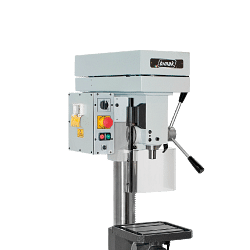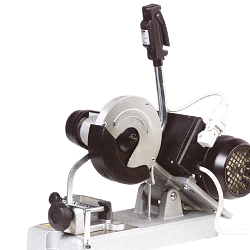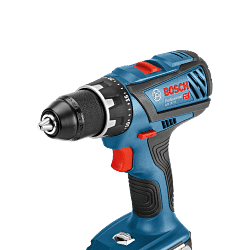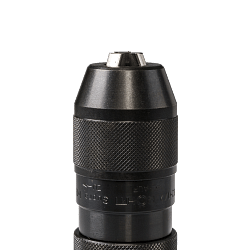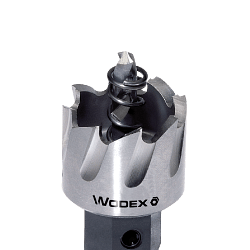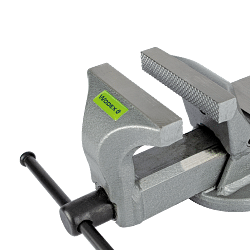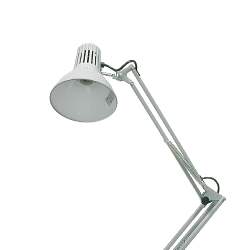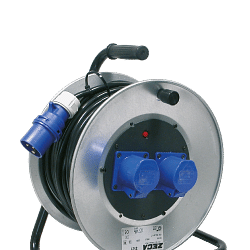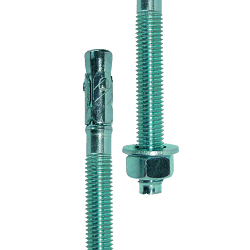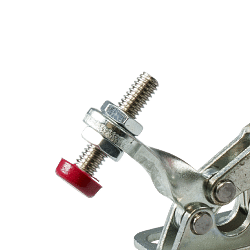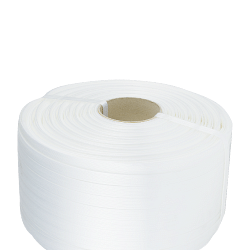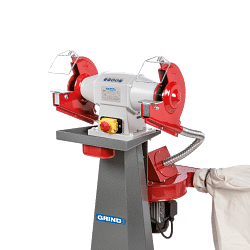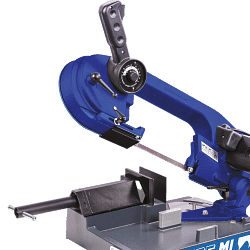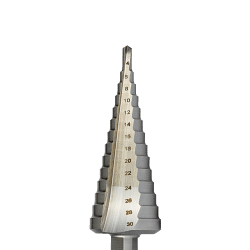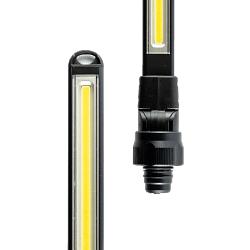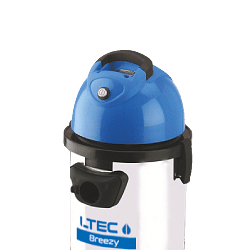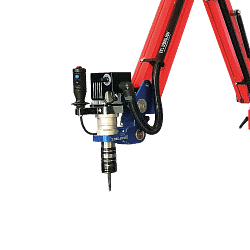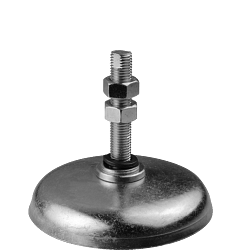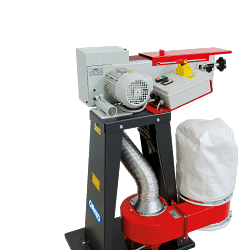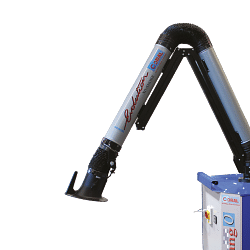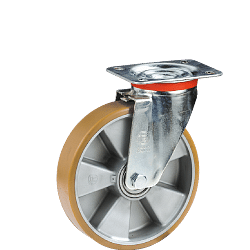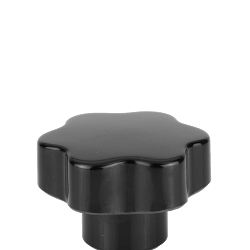< Workshop equipment Industrial aspirators
Industrial vacuum cleaners are an essential component for machine shops, ensuring a safe and clean working environment. These devices are designed to remove dust, fumes and harmful particles generated during machining processes, helping to improve air quality and protect operators' health. In this in-depth look, we will explore in detail what industrial vacuum cleaners are, how they work, their benefits and best practices for their use.
What are industrial vacuum cleaners?
Industrial vacuum cleaners are equipment designed to extract and filter solid, liquid and gaseous particles in the air. Unlike domestic vacuum cleaners, these devices are built to handle high volumes of material and to operate in complex industrial environments. They are equipped with powerful motors and advanced filtration systems to capture even the finest particles, ensuring effective air purification.
How industrial vacuum cleaners work
The operating principle of industrial vacuum cleaners is based on creating a flow of air that sucks in particles suspended in the environment. This flow is generated by an electric motor that drives a fan, creating a vacuum inside the device. The sucked particles are then conveyed through a filter system that traps impurities, releasing clean air into the environment. Filters can be of different types, including HEPA filters, activated carbon filters and cartridge filters, each designed to retain specific types of particles.
Advantages of using industrial vacuum cleaners
The adoption of industrial vacuum cleaners in machine shops offers numerous advantages. Firstly, they help improve air quality by reducing the concentration of harmful dust and fumes. This not only protects the health of operators, but also reduces the risk of explosions in environments where combustible dust is present. In addition, a clean working environment improves operational efficiency by reducing downtime due to maintenance and cleaning of equipment. Finally, the use of industrial vacuum cleaners can contribute to compliance with environmental and occupational safety regulations, avoiding penalties and improving corporate image.
Types of industrial vacuum cleaners
There are different types of industrial vacuum cleaners, each designed for specific applications. Dust vacuums are ideal for removing solid particles, such as metal shavings and wood dust. Liquid vacuums, on the other hand, are designed to suck up liquids and sludge, often used in combination with detergents for cleaning surfaces. Fume vacuum cleaners are equipped with special filters to capture welding fumes and other gaseous emissions. Finally, ATEX vacuum cleaners are designed to operate in explosive environments, ensuring maximum safety.
How to choose the right industrial vacuum cleaner
Choosing the right industrial vacuum cleaner depends on several factors, including the type of particles to be vacuumed, the volume of material to be handled and the specific requirements of the working environment. It is important to consider motor power, tank capacity and the efficiency of the filtration system. In addition, it is crucial to evaluate ease of maintenance and availability of spare parts to ensure continuous and reliable operation. Finally, it is advisable to opt for models certified according to current safety and environmental regulations.
Maintenance and care of industrial vacuum cleaners
To ensure optimal operation and prolong the life of industrial vacuum cleaners, regular maintenance is essential. This includes cleaning and replacing filters periodically, checking seals and connections, and checking that the motor and electrical components are working properly. It is also important to follow the manufacturer's instructions for use and maintenance, and to properly train personnel on the safe and correct use of the devices.
Frequently asked questions about industrial vacuum cleaners
1. What is the difference between an industrial vacuum cleaner and a domestic vacuum cleaner?
Industrial vacuum cleaners are designed to handle high volumes of material and operate in complex environments, while domestic vacuum cleaners are intended for lighter, less intensive use.
2. What are the main types of filters used in industrial vacuum cleaners?
The main types of filters include HEPA filters, activated carbon filters and cartridge filters, each designed to retain specific types of particles.
3. How do I know if a vacuum cleaner is suitable for a hazardous environment?
Vacuum cleaners that are suitable for potentially explosive environments are ATEX certified, a standard that ensures safety in potentially explosive atmospheres.
4. How often should I change the filters of my industrial vacuum cleaner?
The frequency of filter replacement depends on the intensity of use and the type of particles sucked in. It is advisable to follow the manufacturer's instructions and monitor the condition of the filters regularly.
5. Can industrial vacuum cleaners be used to suck up liquids?
Yes, there are industrial vacuum cleaners specifically designed to suck up liquids and sludge, equipped with tanks and filters suitable for handling wet materials.
In conclusion, industrial vacuum cleaners are indispensable tools for machine shops, helping to create a safer and cleaner working environment. Choosing the right model and proper maintenance are key to maximising the benefits of these devices and ensuring efficient and long-lasting operation.
Read More Read Less 




